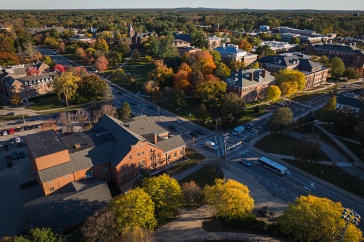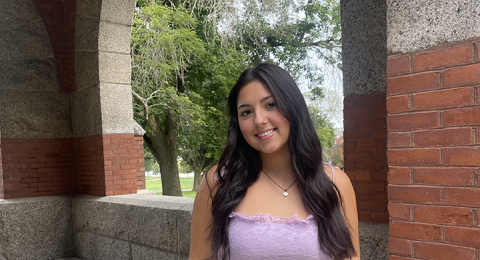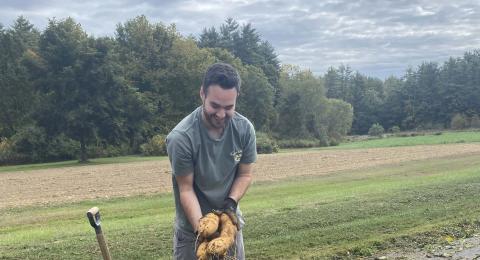College of LIFE SCIENCES AND AGRICULTURE
At the UNH College of Life Sciences and Agriculture, we seek to make a difference — from identifying the molecular pathway that leads to a new treatment for disease, to understanding the complex forces that impact our ecosystems and natural landscapes, to finding solutions for a global food system tasked with feeding billions.
Here, you will deepen your understanding of the world and learn to find sustainable responses to the planet’s biggest challenges. Leading edge research and hands-on experiences, combined with practical skill building in the lab and in the field, will create a firm foundation for your future.
When you graduate, you will join thousands of Wildcats who are forging their own paths to success, from here in New Hampshire to every corner of the world.

Explore Undergraduate Scholarships
We offer many scholarships just for COLSA students that reward your achievements and help make college more affordable.

Discover Research
Opportunities
Unique, hands-on research projects lead to challenges and achievements that extend far beyond the classroom.

Set Your
Course
Discuss goals and design your career plan with help from the professionals at our St. Martin Career Exploration Office.
UNH Diversity Statement
The University of New Hampshire is committed to building and nurturing an environment of inclusive excellence where all students, faculty and staff can thrive. We also are committed to providing open and inclusive access for all alumni, volunteers, learners, employees and visitors seeking to participate in our programs and activities. We venture to sustain a campus environment that fosters mutual respect and understanding. We believe diversity, equity, accessibility and inclusion are foundational values inextricably linked to achieving our core educational mission and embrace the many characteristics of our community members that make them uniquely themselves. Here, you belong and all are welcome.
UNH Land, Water and Life Acknowledgement
As we all journey on the trail of life, we wish to acknowledge the spiritual and physical connection the Pennacook, Abenaki and Wabanaki Peoples have maintained to N’dakinna (homeland) and the aki (land), nebi (water), olakwika (flora) and awaasak (fauna) that the University of New Hampshire community is honored to steward today. We also acknowledge the hardships they continue to endure after the loss of unceded homelands and champion the university’s responsibility to foster relationships and opportunities that strengthen the well-being of the Indigenous People who carry forward the traditions of their ancestors.
Listen to the acknowledgement read by Denise Pouliot, the Sag8moskwa (Head Female Speaker) of the Cowasuk Band of Pennacook Abenaki People from Alton, New Hampshire and a member of the Indigenous New Hampshire Collaborative Collective (INHCC), which includes her husband Paul Pouliot, several UNH faculty members and students, local grassroots organizers and community members and several members of other New England tribes.
Get the Facts
2023 First Destination Survey
2023 First Destination Survey
Recent Stories

Sustainability: From the Ground Up
Sustainability: From the Ground Up
UNH’s Soil BioME team leverages public-private partnerships for soil-based environmental solutions
Article
Outstanding UNH Educators Celebrated at Faculty Excellence 2024
Outstanding UNH Educators Celebrated at Faculty Excellence 2024
Professors on all three campuses recognized at annual event
Article
Coyotes Thrive Despite Human and Predator Pressures
Coyotes Thrive Despite Human and Predator Pressures
Nationwide coyote surveys highlight how hunting by humans may increase, rather than reduce, local coyote numbers
ArticleUpcoming Events
-
Dec10














